One of the nasty diseases that have become commonplace in the modern world is cystitis or cystitis. This disease can be independent, and can be a complication of other diseases. Cystitis is a disease of the urinary tract, which includes inflammation of the mucous membrane of the bladder. It occurs in men, women, and children. Females are more susceptible to this disease due to the specific anatomy of the body: the female urethra is short and wide, which is very convenient for bacteria to enter the body. Many people consider cystitis a woman's disease. Here comes the question: do men get cystitis? Answer: Of course, it happens, just less often. As a percentage, the incidence of cystitis in women is about 25%, and in men - 0. 5%.

The main cause of the development of an inflammatory process in the bladder is Escherichia coli, but chlamydia, ureaplasma and Candida fungi are also dangerous. The development of cystitis is facilitated by a sedentary lifestyle that causes circulatory disorders of the pelvic organs and bladder, decreased immunity, metabolic disorders, menopause, overeatingspicy and diabetes. Cystitis occurs in two forms: acute and chronic. In acute cystitis, the patient urinates frequently and painfully, possibly with blood. Symptoms of chronic cystitis are similar, but not as pronounced. Chronic cystitis, without the necessary treatment, can turn to the interstitial form.
All forms can cause serious changes in the usual lifestyle, reduce effectiveness and cause psychological inconvenience, therefore, at the first symptoms, competent treatment byspecialist. Cystitis is treated by urologists and gynecologists. These specialists determine how to treat cystitis, prescribe treatment, which, as a rule, includes pills to increase immunity, reduce inflammation and antibiotics. Cystitis is a multispecies disease. An example of cystitis is cystitis. This means that the inflammation has spread to the cystic triangle area. If only the lower part of the triangle is affected, then we will talk about cervical ectropion. Cervical cystitis gets its name due to the localization of the inflammation in the bladder neck region. Its treatment is a complex process, requiring the patient to adhere to bed rest, a strict diet, and plenty of fluids.
When it comes to cystitis in women, it must be said that this disease tends to be worse before menstruation. Menstrual cystitis is quite common. During this period, due to the anatomical and biological characteristics of the female body, the penetration of bacteria, protozoa and viruses into the genital tract, urethra becomes more rapid and dangerous. In addition, during menstruation, the immunity of women or girls is very vulnerable, if not kept clean, menstrual blood can become a great source of food for uninvited guests. Moreover, fungi of the genus Candida are located in the vagina, have the ability to cause cystitis on their own and reduce immunity.
Cystitis in children is also more common in girls than boys. This is due to the close proximity of the short, wide, and anal urinary systems. In addition, cystitis in children can be caused by hypothermia, weakened immune system and genetic factors. Cystitis in infants is facilitated by the constant wearing of diapers, which is very common today, and the presence of stones in the urinary organs.
Cystitis in men is typical for representatives of adulthood. The male symptoms of this disease are identical to those of women. Almost always, the cause of the development of cystitis in men lies in the penetration of the infection through the bloodstream from adjacent inflamed organs.
In addition to the traditional notion of what causes cystitis, psychological provocations can also occur. The psychology of cystitis has a certain place, because this disease manifests itself outwardly during a changing period of life. Often cystitis is observed in people who tend to suppress or suppress their emotions.
Types of cystitis
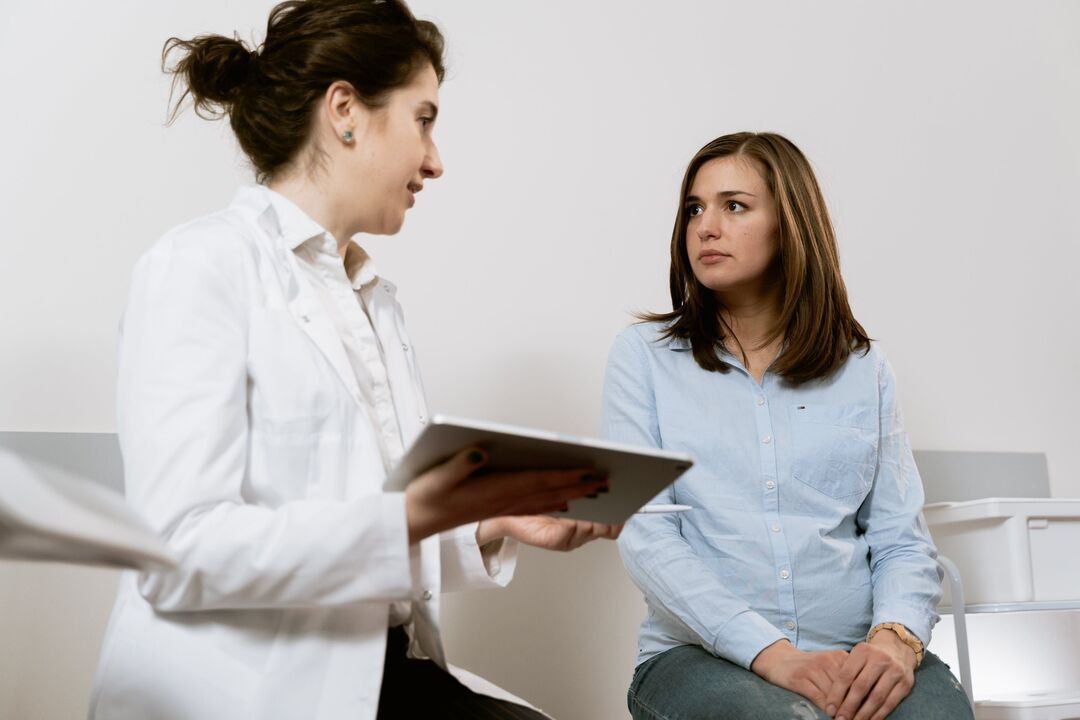
As noted above, acute and chronic cystitis are distinguished. Acute cystitis is understood as an inflammation of the bladder that first appeared in a patient, but has not turned into a chronic disease. If an exacerbation of cystitis occurs 2 or more times within 6 months or 3 or more times within a year, the cystitis is called recurrent. Acute exacerbation of cystitis and acute form of cystitis are not synonymous. Exacerbations indicate complications of the disease. Without effective and definitive treatment, cystitis from acute form will become chronic. The course of acute cystitis is unpredictable. Symptoms of acute cystitis are more obvious than chronic. Exacerbations of the disease mainly occur in the spring and autumn period. In most cases, gram-negative intestinal bacteria and coagulase-negative staphylococci become provoking the development of infectious cystitis. Cystitis is very diverse in types. Doctors distinguish the following types: hemorrhagic, interstitial, radioactive, sexual, postpartum, cervical, hypercalcemic, chemical, allergic and parasitic. Let's take a closer look:
- Hemorrhagic cystitis is an inflammation of the bladder caused by an infection. It is characterized by the excretion of urine with an unpleasant odor and blood in it;
- with interstitial cystitis, the inflammatory process develops due to its non-infectious nature. This species is characterized by pain during bladder filling and volume depletion. With interstitial cystitis, not only the mucous membrane becomes inflamed, but also the submucosa;
- One of the consequences of radiation therapy is radiation cystitis. This happens because the lining of the bladder is damaged;
- due to changes in the microflora on the basis of sex, genital cystitis develops. Its subspecies are cystitis, caused by sexually transmitted diseases;
- When the infection enters the urethra and bladder, postpartum cystitis develops. Its main pathogens are Escherichia coli, mycoplasmas and other infections;
- Cervical cystitis - inflammation of the bladder neck. This species may have urinary incontinence;
- in case of metabolic disorders, hypercalciuria can develop, in particular, when the kidneys begin to secrete calcium salt crystals;
- with cystitis, chemical cystitis develops, but it is not very common;
- allergens that have entered the human body (in the form of foods, drugs, cosmetics and household chemicals) that can cause allergic cystitis;
- A worm infestation is often capable of causing a parasitic form of cystitis
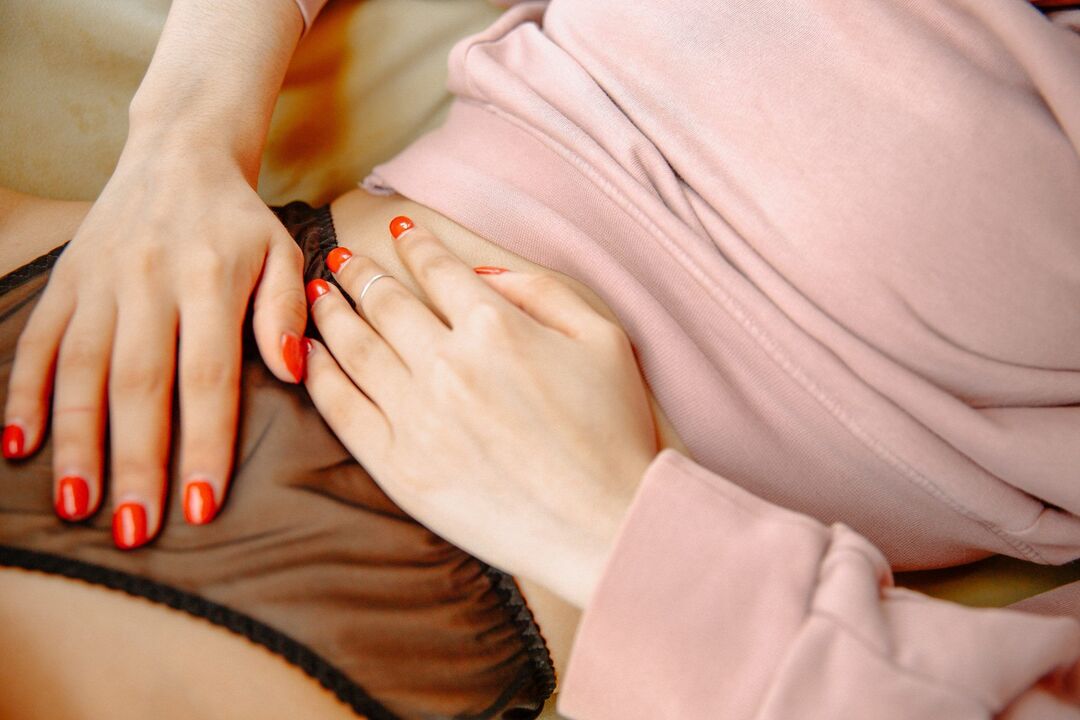
Regardless of the type of cystitis, treatment will include antibacterial medication, bed rest, heat drying, herbal decoction, and drinking enough fluids.
Symptoms of cystitis
The symptoms of cystitis in women, men, and children are essentially the same. As a rule, cystitis causes frequent urination with a small amount, giving a feeling of pain and burning. Urine becomes cloudy and has an unpleasant odor. It is not uncommon for a small amount of blood to pass through the urine. With cystitis, weakness and pain in the lumbar region can be observed.
Symptoms of cystitis in children and the elderly are not so pronounced and can manifest as temperature changes, stomach pain, and nausea. In old age, cystitis may be asymptomatic. Another symptom of cystitis is urinary incontinence.
The first manifestation of the disease is frequent urination. The desire to go to the bathroom may appear during the day and at night every few minutes. Sometimes women lose control of this process and urinate spontaneously.
As the inflammatory process develops, the clinical picture is complemented by the following symptoms:
- itching and burning in the vulva;
- pain in the back of the neck that radiates to the lower back;
- slight increase in body temperature;
- incomplete feeling of the bladder;
- Change in color and smell of urine.
In severe cases, bouts of cystitis are accompanied by high fever, nausea, vomiting, and bloody urine.
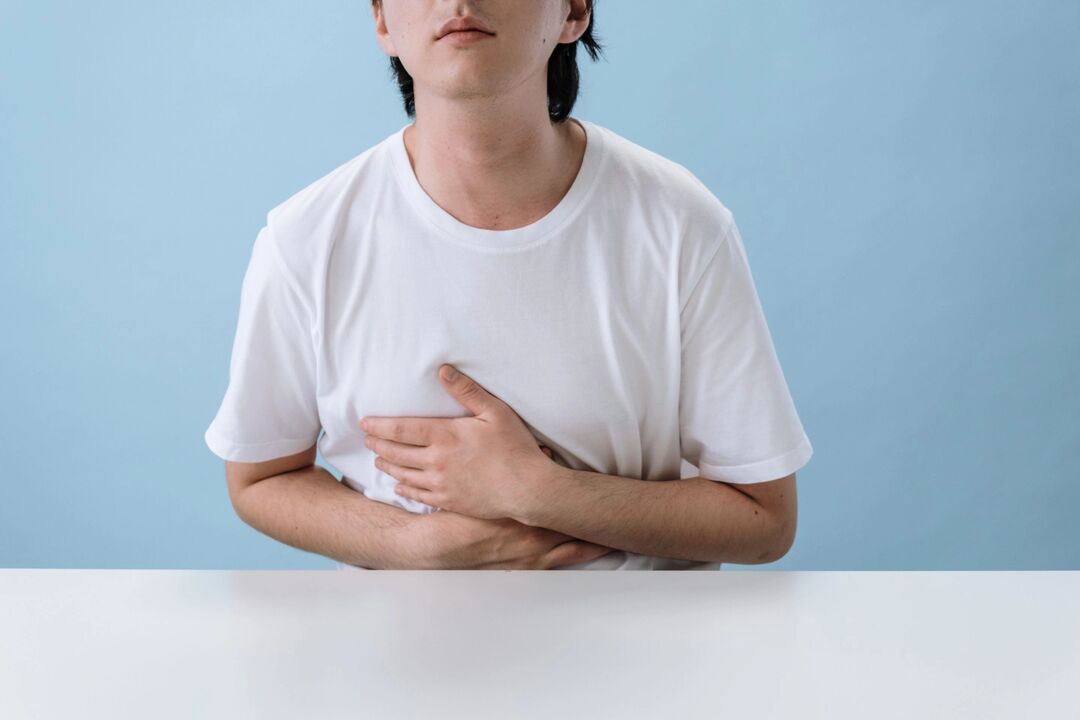
Symptoms of cystitis in women are difficulty urinating, nocturia. Characteristic for such states are the application of efforts to urinate (the need to push), urinary incontinence, pain at the beginning and end of the process of urination. In the state of acute cystitis, there is a phenomenon of high body temperature, poor health.
Symptoms of cystitis in men are similar to those in women: frequent urination, especially at night, cramping and pain in the pubic and perineal area, mucus and blood in the urine.
Cystitis in children is not always immediately identified, as it is more difficult for the child to explain his condition and the nature of the pain, and the infant will not be able to explain anything. In children, there is often a state of weakness, discomfort in the lower abdomen, pain and burning like in adults. The color of urine becomes dark yellow. The child becomes comatose, and has a temperature of up to 38°C. Cystitis is less common in boys than in girls.
Causes of cystitis
The most common cause of cystitis is the entry of bacteria into the bladder through the urethra, specifically Escherichia coli. Cystitis after intercourse develops due to prolonged rubbing of the urethra. As a rule, the first symptoms of cystitis after sexual intercourse are observed after 12 hours. The cause of the development of cystitis can be an allergy to intimate cosmetics. In children, the cause of cystitis may be a pathology of the urinary organs, in which the flow of urine is disturbed and may back up into the ureters. Elderly people often have difficulty moving and lead a sedentary lifestyle. This leads to incomplete emptying of the bladder and frequent urination, which can lead to the development of cystitis. Cystitis affects people who frequently hold their urine for a variety of reasons. The presence of a tumor can be one of the causes of cystitis, but this phenomenon is infrequent.
The cause of cystitis in women is associated with a violation of the microflora of the vagina. Usually, women present with various types of inflammation due to infections and allergies. Gonorrhea with no less success can cause cystitis. Hypothermia is considered a major risk for women. So, let's outline the most common causes of cystitis in women:
- non-compliance with personal hygiene;
- hypothermia (sitting in the cold);
- urinary retention;
- weak immunity;
- pregnancy;
- surgical intervention in the genital organs and their infection.
The cause of cystitis in men is the presence of diseases of the urinary system, of which cystitis is a complication. In general, the same causes as in women: stagnation of urine, hypothermia, E. coli bacteria, and gonorrhea (and other STDs) also cause illness. Cystitis in men can be associated with tuberculosis of the genitourinary system. In the presence of infectious and viral diseases, cystitis can develop by the blood route. The development of cystitis is promoted by diabetes mellitus, abdominal trauma, stress and surgical intervention in the genitourinary system.
Classification of cystitis in women
By the nature of the course, acute and chronic forms of the disease are distinguished. Acute cystitis usually develops spontaneously after exposure to irritants. If symptoms of the disease persist for more than 14 days, chronic inflammation occurs.
In acute cystitis, the inflammatory process does not extend beyond the mucosal, submucosal layer. The clinical picture is manifested by frequent urination, bladder pain, pus in the urine, feeling of incomplete bladder emptying, and false urge to urinate.
Severe forms of acute inflammation accompanied by increased body temperature, severe intoxication. The pain is not only localized in the pubic area, but also radiates to the perineum and genitals. In the urine there are many white blood cells, bladder lining cells, bacteria.
Chronic cystitis in women is accompanied by structural changes affecting the walls and muscles of the bladder. In this case, the disease does not develop independently, it is often preceded by diseases of the kidneys, urethra, genital organs, sclerosis of the bladder neck, prostate tumor, urolithiasis. With multifactorial etiology of chronic cystitis, in women, treatment is selected only after determining the cause of the development of the disease.
The disease often progresses with relapses and exacerbations. In chronic inflammation, damage to the kidney, neck, lateral wall, posterior wall, and anterior wall of the bladder cannot be excluded.
Diagnosis of cystitis
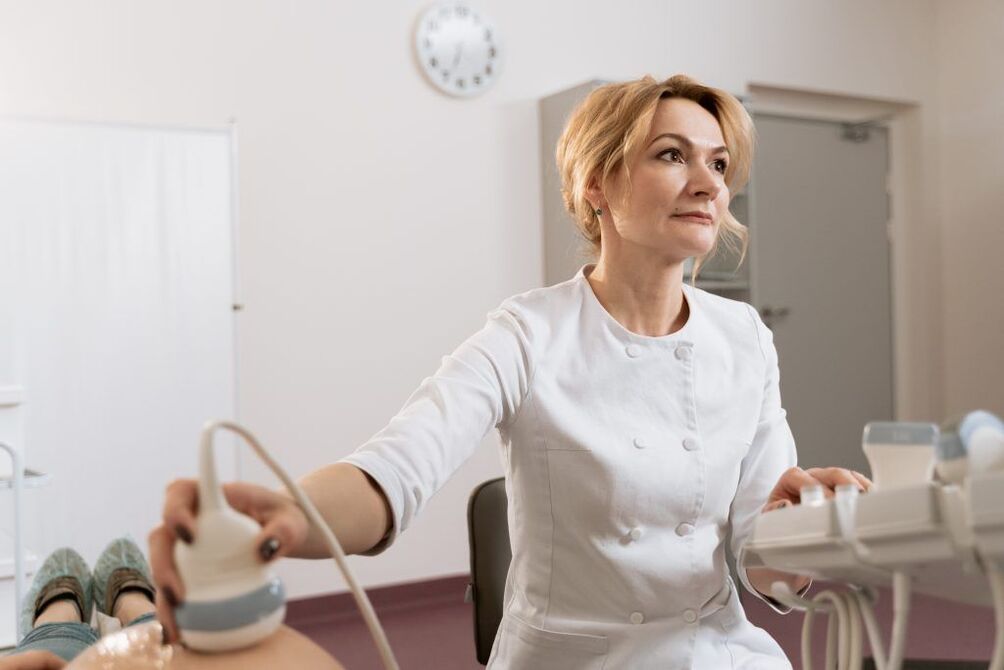
The basis of the diagnosis of cystitis are laboratory tests. To identify or confirm cystitis, the patient may be referred for the following tests:
- complete blood count - helps to identify the inflammatory process by increasing ESR and white blood cells;
- urinalysis - in case of cystitis shows protein. Microscopic examination of cystitis will show increased white blood cells and red blood cells. Urine with cystitis becomes cloudy and may be pink in case of bleeding;
- urinalysis according to Nechiporenko - they turn to him in case of the presence of red blood cells in the urine sediment and a high number of white blood cells. For this analysis, it is necessary to pass the average morning urine stream;
- bacteriological diagnosis in the urine allows you to identify the culprit of cystitis. This is important for prescribing antibiotic therapy;
- special test strips for leukocytes that allow you to calculate their high concentration in urine;
- nitrite test strips help detect infections in the urinary tract.
During menstruation, women should not give urine for testing, because the results can be skewed.
Rules for passing urine tests for cystitis
Before you start collecting your morning urine, you must wash your genitals with warm water or a disinfectant solution. Before the urine test, you should not eat foods that can affect the color of your urine, it is better not to drink juices, fruit drinks and kefir (which affect the acidic flora). You also cannot take diuretics and laxatives.
Treatment of cystitis
Can cystitis be cured permanently? This is probably the main question that worries people who have experienced this disease. This can be done if treatment is started at the right time. How and how to treat cystitis, the urologist determines. As a rule, doctors choose complex therapy. In addition to drug treatment, compliance with diet and lifestyle plays an important role. Let us clarify that the daily water intake should be at least 2-2. 5 liters, and the diet implies the consumption of diuretic products and the refusal of alcohol, coffee, spicy, fried, smoked foods. smoke, salty, sour, canned foods and preservatives. . Adherence to these regimens is a general rule in the treatment of cystitis in women, men, and children. Let us look at the more detailed aspects of cystitis treatment.
Treatment of cystitis in women does not require a hospital stay and can be done at home. Applying heat to the lower abdomen and soaking in a warm bath will help repel unpleasant symptoms. For the treatment of cystitis, women will have to temporarily refuse to have sex. The desired outcome of therapy is to normalize the systemvaginal microbiology. Women are mainly prescribed penicillin antibiotics to neutralize microorganisms and probiotic preparations to stabilize the microflora. Candles with belladonna will help soothe inflammation. Depending on the doctor's order, the treatment lasts less than a week. Important question for women: how to treat cystitis during pregnancy and is it dangerous for the fetus? Cystitis is a disease that, if not treated properly during pregnancy, can cause complications in the form of kidney infections and premature birth. To treat cystitis during pregnancy, doctors will choose the safest drugs. Infectious cystitis causes difficulties, as its treatment requires antibiotics that are not recommended for the fetus. To treat cystitis in pregnant women, analgesics and anticholinergics, drugs that relax the bladder muscles are used. Postpartum cystitis develops due to the clamped position of the bladder and impaired blood circulation during labor, catheterization and cooling, in addition to a weakened immune system after birth. Cystitis that occurs during lactation is safer to treat with herbal preparations, but we must remember that, like any medicine, only a doctor can prescribe it.

To eliminate pain, frequent urination, doctors prescribe antispasmodics and non-steroidal anti-inflammatory drugs. The choice of drugs for the treatment of cystitis in men depends on the existing pathologies of the genitourinary system. Physiotherapy and nursing will be effective assistants to help improve the condition after the exacerbation and during remission.
When using antibiotics for cystitis:
- fluoroquinolones
- nitrofurans
Treatment of cystitis in children should be prescribed and monitored individually by a doctor. Self-administering antibiotics to children can lead to serious health problems in the future. Sick children, like sick adults, need rest, a diet, and a warm bath. In the acute form, digestive, analgesic and antibacterial drugs are often prescribed. The main task of parents in the treatment of children is to strictly follow medical recommendations, especially the dosage and duration of the drug. Chronic cystitis in children is mainly a consequence of foreskin stenosis, genital infections, urethritis, diverticulitis and other diseases. This suggests that, based on comorbidities, the treatment of chronic cystitis would be aligned.
To prevent cystitis in children and adults, it is very helpful to take preventive measures. Prevention of cystitis includes observance of the rules of hygiene (procedure of water with soap every day), wearing clean linens, strengthening immunity, proper and healthy nutrition.
Cystitis medicine
Preparations for the treatment of cystitis in women, men, and children include antibiotics, anti-inflammatory drugs, and general tonics. The drug of choice for the treatment of cystitis has active ingredients: fosfomycin, nitrofurantoin, furazidin. Alternative antibacterial therapy for cystitis with active ingredients: ofloxacin, ciprofloxacin hydrochloride, levofloxacin hemihydrate. The first three drugs have been used to treat cystitis for many years and still have not lost their relevance. Let us consider in more detail the features of remedies for cystitis.
Broad spectrum antibacterial. The course of treatment with these drugs ranges from one week to 10 days. They are recommended to be consumed after meals. These remedies for cystitis are very suitable for first aid for exacerbations. The disadvantages of the drug include a large number of side effects.
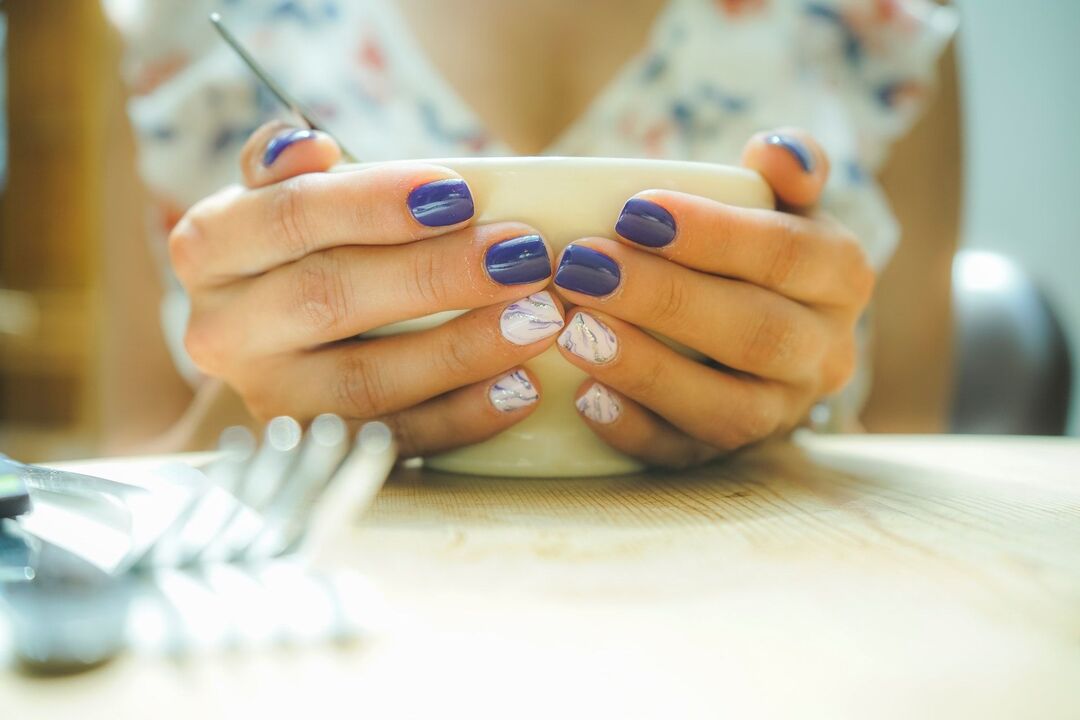
It can be said that the ideal antibiotic for cystitis with fosfomycin. It is available in tablet and powder form to dissolve in water. This modern tool has a minimal list of side effects, which is a definite plus when choosing a drug. The drug has a point of absorption and acts rapidly directly on the bacteria that cause the development of cystitis. Just one pill to treat cystitis is enough to achieve a successful treatment effect. This is hard to believe, but it has been proven that just one dose of antibiotics will eliminate all the uncomfortable symptoms of cystitis. But these are not all advantages: fosfomycin is effective and safe to treat cystitis during pregnancy. Should be taken before going to bed, after urinating. The effect of antibiotics lasts 3 days.
In the treatment of cystitis, herbal remedies have also been shown to be effective, which can be used together with antibiotics to increase the effectiveness of treatment and after an exacerbation for a long time to prevent the development of another exacerbation. . For these purposes, long-term intake of decoctions of various diuretic and antiseptic herbal preparations or formal herbal medicines are indicated. Herbal treatment of cystitis is combined with drug therapy with great success. Studies have shown that the results of herbal medicines are observed in a few weeks. The advantage of using herbal preparations is their naturalness. But plants are not always safe for our body, so it is very important to respect the dosage. Dosage of herbal preparations varies depending on the age of the patient. So, for example, the daily dose of herbal tea for children under 1 year is half a teaspoon, children under 3 years old - 1 teaspoon, 6 to 10 years old - 1 tablespoon, adults - 2tablespoons. Here is an example of a cystitis herbal collection recipe that you can cook at home.
Prevention of cystitis in women
In half of the cases, cystitis in women recurs. To prevent the onset of diseases and their recurrence, it is enough to follow a few simple recommendations:
- Pay more attention to personal hygiene. Girls from an early age need to be taught to keep their genitals clean, wash them daily and change their underwear.
- When choosing underwear, women should pay attention to its composition. You cannot wear products made of synthetic fabrics and the size does not match.
- Drink lots of clean water. Maintaining a normal water balance in the body strengthens the immune system, and frequent urination accelerates the removal of pathogenic microorganisms from the genitourinary system.
- Avoid hypothermia, wear seasonal clothing, do not wear short skirts, thin tights in the cold season.
- Can't stand the urge to urinate.
Many women do not consider cystitis as a dangerous disease and try to deal with the pain on their own. The situation is especially dangerous when, on the advice of friends or acquaintances, they start taking antibiotics. At the first symptoms of pathology, it is necessary to consult a doctor and strictly follow all his recommendations. The treatment regimen is strictly selected individually based on the nature of the disease process, its form and the presence of concomitant pathologies.




























